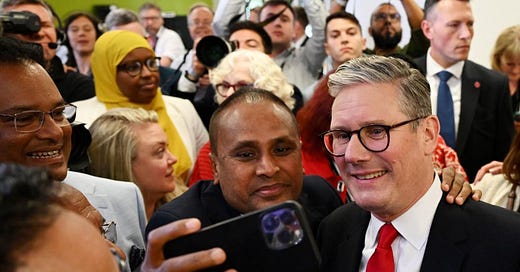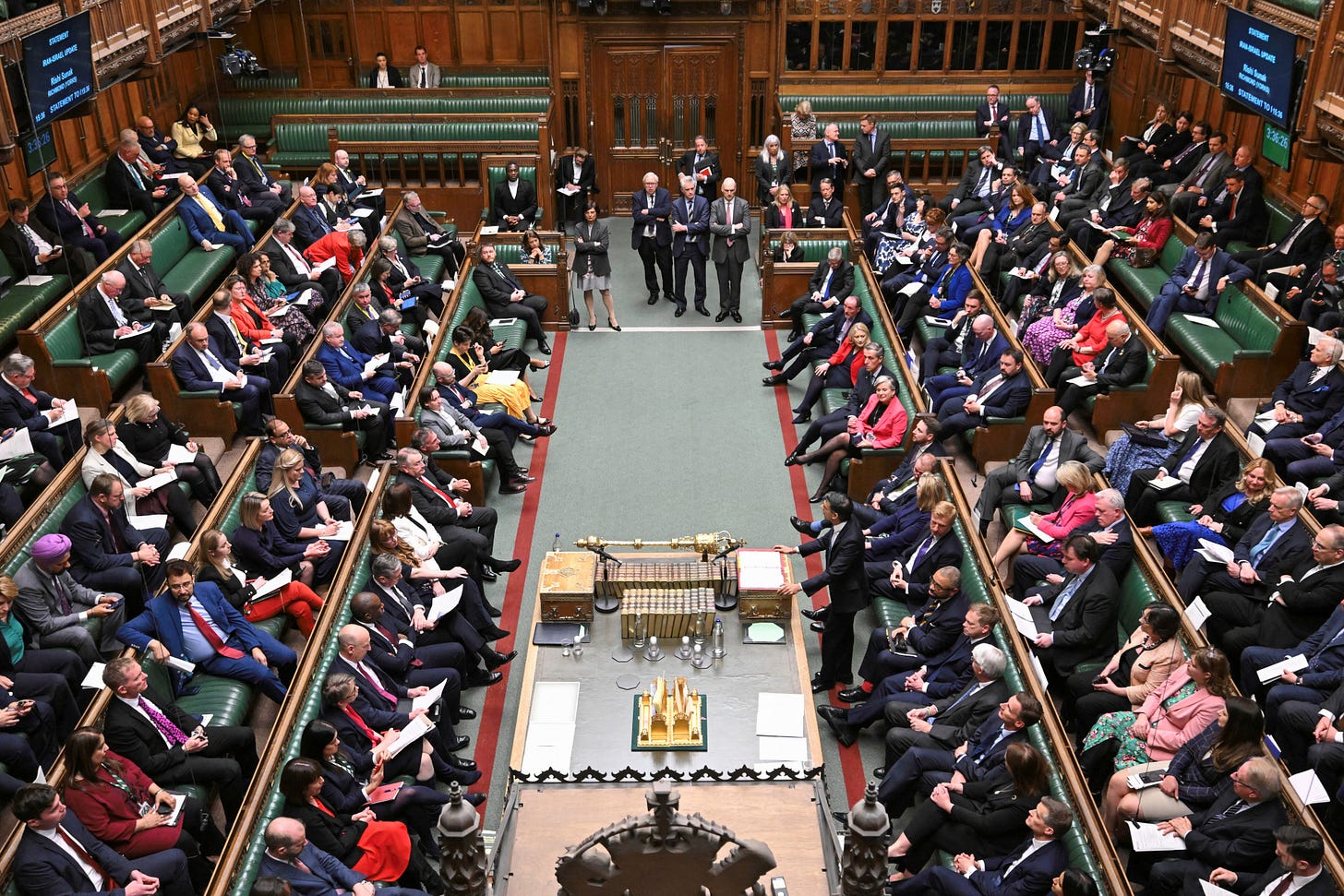Commonwealth Nationals Residing in the UK 🇬🇧 can Vote in House of Commons Elections
This is irrespective of their country of citizenship. Therefore, Indian students residing in the UK could be registered as voters in this general election.
Introduction— Can Non-Citizens Vote?
As the UK went to the polls today (4th July), with the Labour Party predicted to secure a landslide victory— projected to win 410 of the 650 seats according to the latest trends, we examine the unique phenomenon of the United Kingdom's policy of allowing Commonwealth citizens to vote in general elections despite not holding British citizenship. I first learned about this peculiar legal position when I was on a Government of India-sponsored one-year training course for my MA (Economics) degree at the University of Manchester in 1996-97 and witnessed the general elections in May 1997 that led to the return of the Labour Party led by Tony Blair.
This article explores who can vote in UK general elections (see live results), the historical and legal basis for this policy, the criticisms and debates surrounding it, and the specific case of the Gurkhas from Hong Kong.
Who Can Vote in UK General Elections?
In the UK, the eligibility criteria for voting in general elections include being a British, Irish, or qualifying Commonwealth citizen, being 18 or over, and residing in the UK. This is a distinctive feature, as most countries restrict voting rights in national elections to their own citizens. It is estimated that around 960,000 Commonwealth citizens living in England and Wales have the right to vote, even though their home countries do not reciprocate this right for British citizens.
Historical and Legal Basis
The voting rights of Commonwealth citizens in the UK stem from the historical connections between the UK and the countries of the former British Empire. Before World War II, residents of Britain's overseas dominions were considered British subjects with the same rights as those born in the UK. The British Nationality Act of 1948 created a distinction between British subjects and Commonwealth citizens but maintained the latter's rights to vote and settle in the UK. Over time, while the right to vote has been preserved due to inertia and sentimental ties to the Commonwealth, the right to enter and reside in the UK has been progressively attenuated. Today, Commonwealth citizens can register to vote in UK general elections without any minimum period of residence required, provided they register by the election deadline. However, they now have no right to enter or reside in the UK without a visa.
Criticism and Debate
Arguments Against
Critics argue that it is anachronistic for non-citizens to have the right to vote in national elections. They highlight concerns over the potential impact on election outcomes, given that over a million Commonwealth citizens could influence results. Additionally, there are worries about sectarian political campaigning targeting specific ethnic or religious groups.
Arguments For
Proponents of the current system argue that Commonwealth citizens who live, work, and pay taxes in the UK should have a say in the country's democratic processes. They contend that restricting voting rights would exclude millions of residents from participating in the governance of the country they contribute to.
The Case of the Gurkhas from Hong Kong
Background
The handover of Hong Kong to China in 1997 marked a significant change in the region's governance, transitioning from British to Chinese sovereignty. Gurkha soldiers, recruited from Nepal, had served in the British Army in Hong Kong since 1948. At their peak, around 10,000 Gurkhas were stationed there. Before the handover, the number of Gurkhas was significantly reduced, with many returning to Nepal or relocating to the UK.
Right of Abode Controversy
A major issue arose regarding the right of abode for Gurkha soldiers who served in Hong Kong. In 2009, after a successful campaign and court case, Gurkha veterans who served at least four years before 1997 were granted the right to settle in the UK. This decision was later expanded in 2023 to include the families of deceased Hong Kong soldiers, including Gurkhas. However, the eligibility criteria have been criticized for being too stringent.
Summing
The UK's policy of allowing Commonwealth citizens to vote in general elections is a unique remnant of its colonial past. While it is a subject (no pun intended) of ongoing debate, with strong arguments on both sides, the current law stands. Commonwealth citizens meeting the residency requirements can participate in UK elections, reflecting the country's historical and legal traditions. With these voters still numbering under a million out of an estimated 46 million total registered voters, their impact on the outcome of the 2024 general elections, which witnessed a Labour Party tsunami, would not have been significant. However, in tightly contested by-elections, especially in marginal constituencies, their numbers could make all the difference.
If you believe this article would interest someone you know, please feel free to share it anonymously (for us), using any platform that you prefer.






